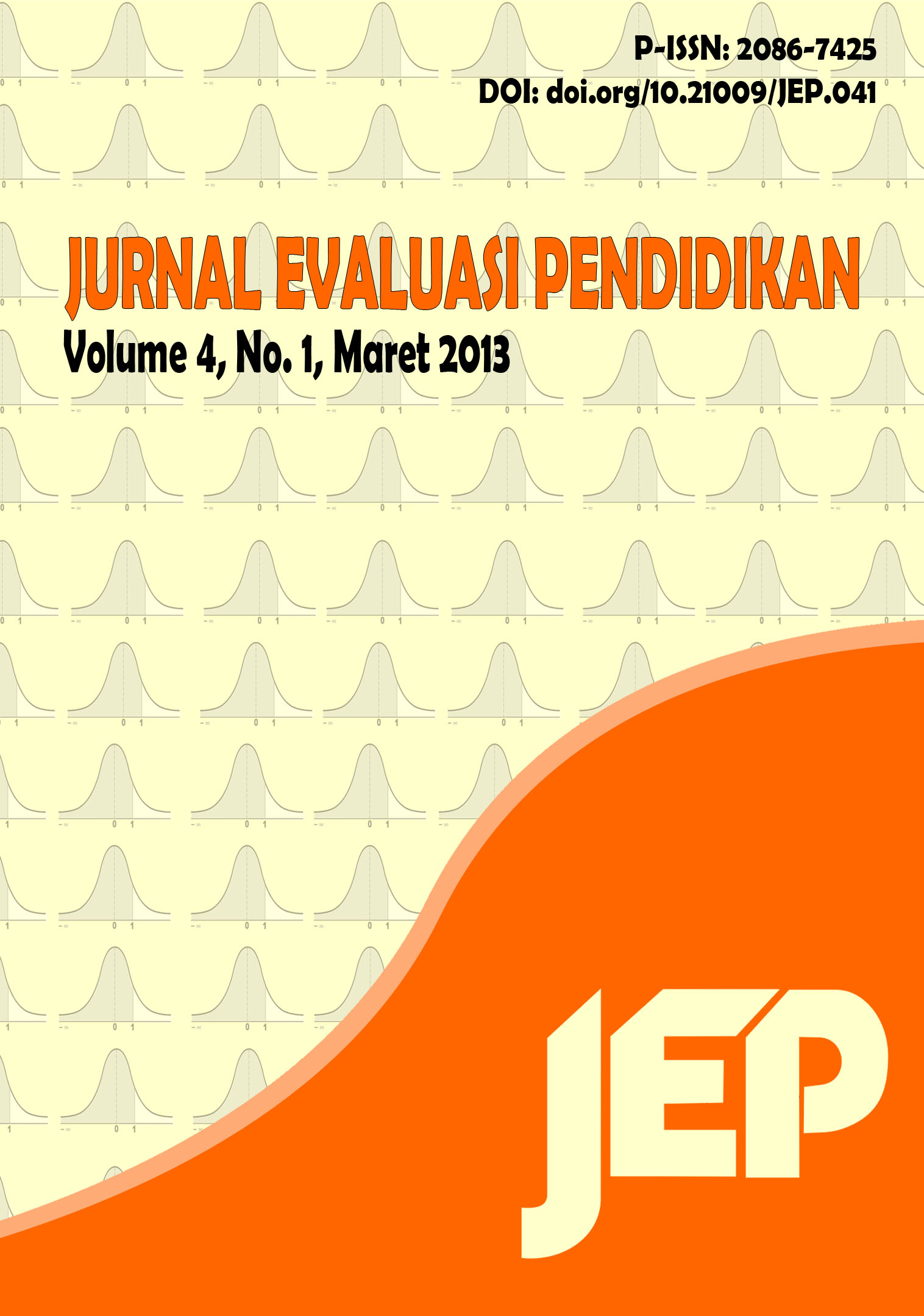THE INFLUENCE OF COOPERATIVE LEARNING MODELS AND ASSESMENT TECHNIQUES TOWARD MATHEMATICS ACHIEVEMENT
DOI:
https://doi.org/10.21009/JEP.041.06Keywords:
Cooperative Learning, Assessment Techniques, Mathematics AchievementAbstract
The purpose of this research was to find out the influence of cooperative learning models and assesment technique toward mathematics achievement. This research was an experimental which conducted at SMPN 3 and SMPN 31 Bekasi City. The research sampling was obtained with random technique. The data analysis was conduct with two ways analysis of variance (ANOVA) 2 X 2. The research result showed that: (1) The mathematics achievement of student who was given cooperative learning model Two Stay Two Stray (TSTS) is higher than the matematics achievement of student who was given cooperative learning model Learning Together (LT), (2) The mathematics achievement of student who was given the technical assesment performance test is higher than the student who was given the technical assesment of writting test in essay, (3) There was an influence interaction between the cooperative learning model and the the technical assesment toward mathematic achievement, (4)The mathematics achievement of students who was given treatment cooperative learning model of TSTS type with technical assesment performance was higher than the mathematics achievement of student who was given cooperative learning model of LT type with technical assesment test performance, (5) The study of mathematics achievement which was given the technical assesment of performance is higher than which was given technical assesment of writting test in essay form, especially if using the cooperative learning model type TSTS, and (6) The mathematics achievement with technical assesment test performance is higher than technical assesment of writting test in essay form, especially if using the cooperative learning model type LT.








